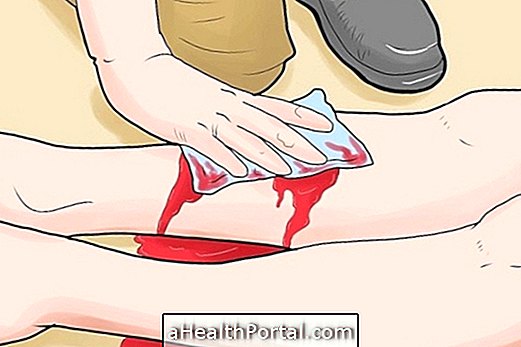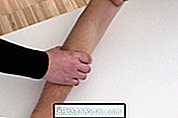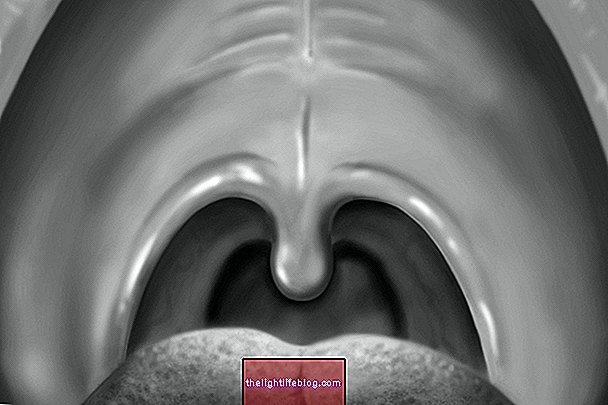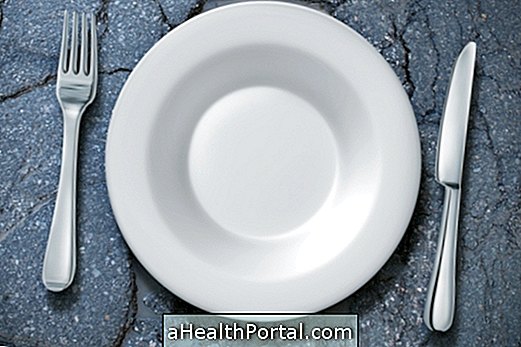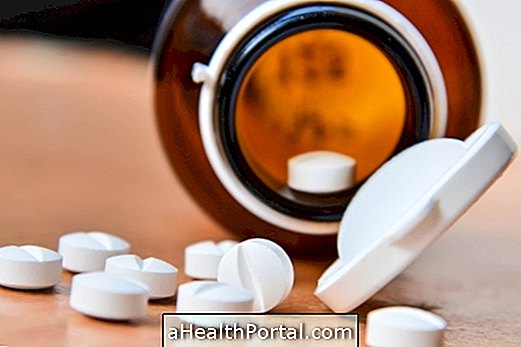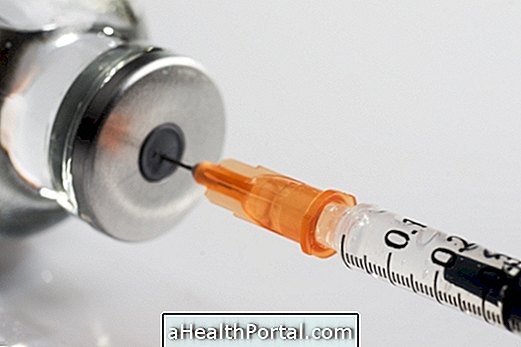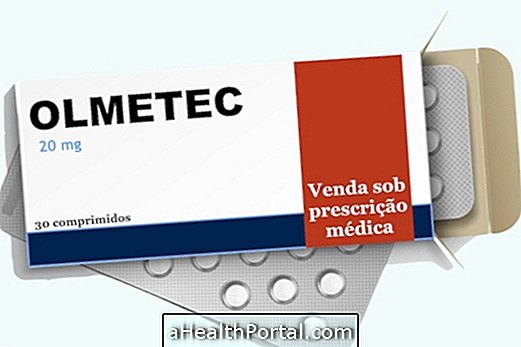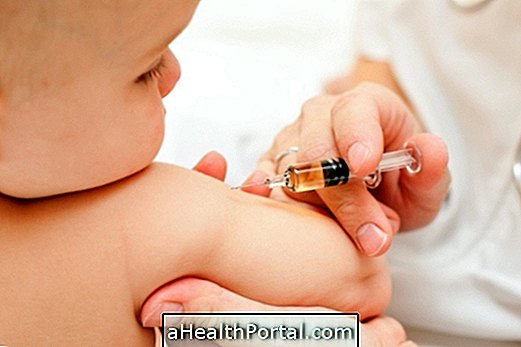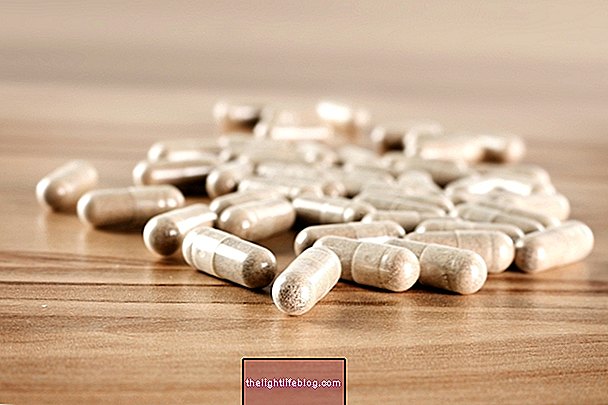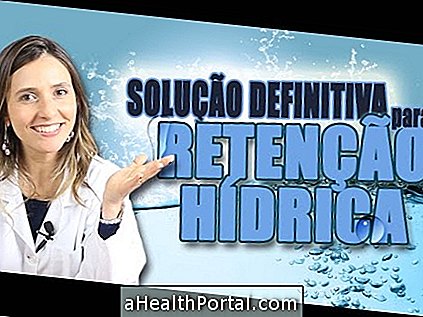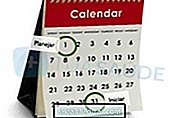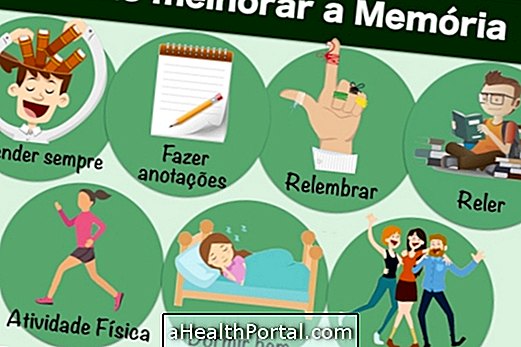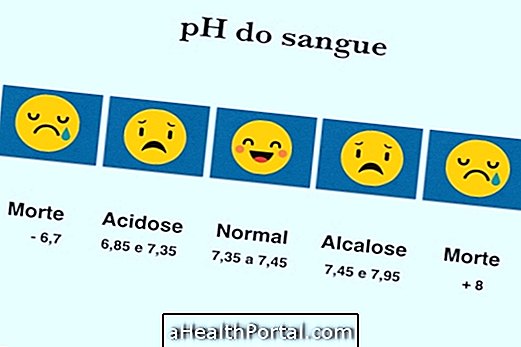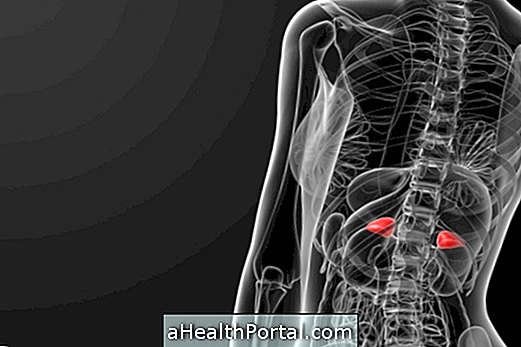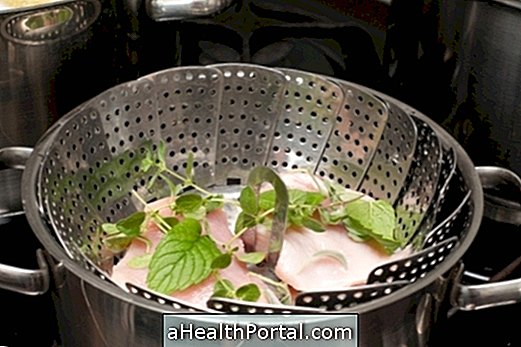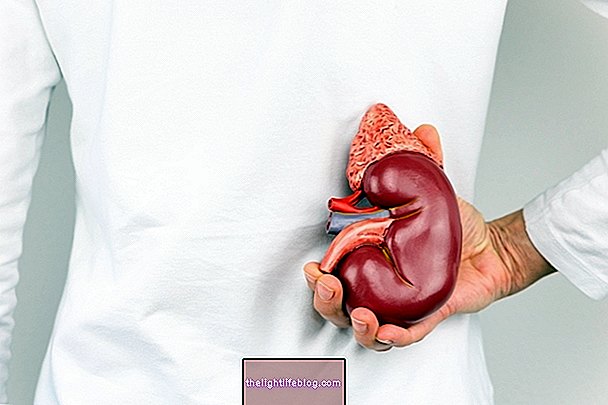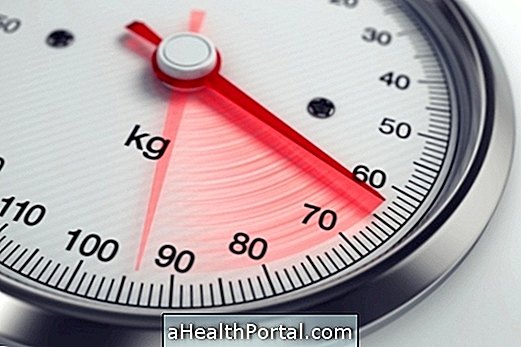When taking detergent it is possible to be poisoned even in a small quantity, depending on the type of product. Although this accident can happen in adults is more frequent in children and in these cases, the accident is more serious. So, what to do if someone drinks detergent includes:
1. Call SAMU by dialing 192 and inform about the person's age, the product ingested, the quantity, how long, in which place and whether it was fasting or after the meal. In case of being near the hospital the child can be transported quickly to the first aid;
2. Assess the person's state of consciousness :
- If you are aware, keep your eyes open and be able to talk: sit down and talk to the person to try to get as much information as possible about what happened;
- If you are unconscious but breathing: put aside to avoid gasping if you vomit;
- If you are unconscious and do not breathe: begin cardiac massage by performing chest compressions and breathing through the mouth. Here's how to do heart massage.
3. Keep the person warm and comfortable, seeking to calm her with phrases of support and attention.
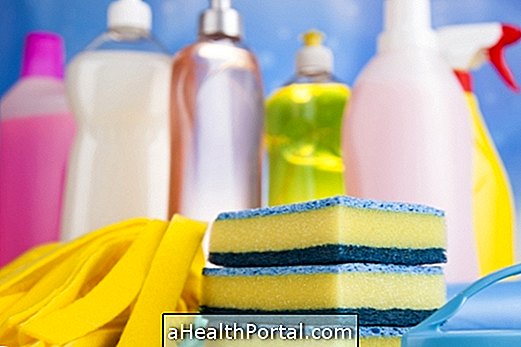
In addition, specific guidance should be sought immediately from the Poison Control Center which operates 24 hours by calling the city number.
Region | Phone number |
| Porto Alegre | 0800 780 200 CIT / RS |
| Curitiba | 0800 410 148 CIT / PR |
| Sao Paulo | 0800 148 110 CEATOX / SP |
| savior | 0800.284.4343 CIAVE / BA |
| Florianópolis | 0800.643.5252 CIT / SC |
| Sao Paulo | 0800.771.3733 CCI / SP |
What should you do after taking detergent?
Taking detergent can be dangerous and cause poisoning and, in order not to aggravate the situation, one should not:
- Induce vomiting
- Give food because it can cause choking;
- Give any kind of medicine or natural product because they can interact with the cleanser.
This way of acting, can be applied to the intake of gasoline, alcohol or pesticides, for example, as they are also poisonous products that cause poisoning.
What you may feel after taking detergent
After ingestion of detergent may occur:


- Breath with strange smell;
- Too much saliva or foam in the mouth;
- Belly pain, nausea and diarrhea;
- Vomiting sometimes with blood;
- Difficulty in breathing;
- Bluish pale face, lips, and fingernails;
- Cold and sweating;
- Agitation;
- Drowsiness and lack of will to play;
- Delusions with meaningless conversations and strange behavior;
- Fainting.
In the case of a child, if you have not seen the ingestion of the detergent but you have some of these symptoms or find the container open, you can suspect that it is ingested and you should act in the same way, asking for medical help quickly.
How is the hospital treatment done?
The medical treatment will depend on the detergent ingested, the amount of the product and the symptoms manifested.
However, it is normal for a person to be attached to several medical devices to measure heart and respiratory rate, blood pressure, amount of oxygen and heart function, and in some cases it is necessary to be hospitalized between about 2 days to check that the state of health does not aggravate.
In addition, during treatment, your doctor may recommend:
- Remedies to prevent vomiting, such as metoclopramide or activated charcoal;
- Wash the stomach to remove the toxic product;
- Administer castor oil, which helps to delay the absorption of detergent;
- Give serum into the vein to maintain the balance of water and electrolytes;
- Give medicines to treat seizures with diazepam and if necessary medicines to keep heart beats stable;
- Wear an oxygen mask to help you breathe better or use other appliances to breathe.
In the case of the child, it is common for parents to accompany the child in the hospital, helping to control anxiety and fear.
How To Prevent Ingestion of Toxic Liquids
To prevent a child from taking detergent or other toxic product, such as gasoline or alcohol, one should:
- Keep container labels;
- Do not use empty containers to store toxic products;
- Do not place cleaning fluids in food containers;
- Store chemicals in tall, locked cabinets;
- Do not put detergents near drinks or food;
- Use lockable containers whenever possible.
Keeping these care the chances of the child ingesting toxic products is less.
